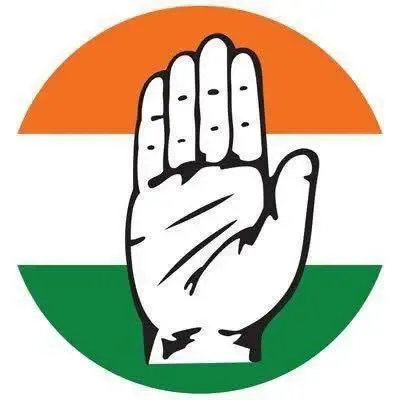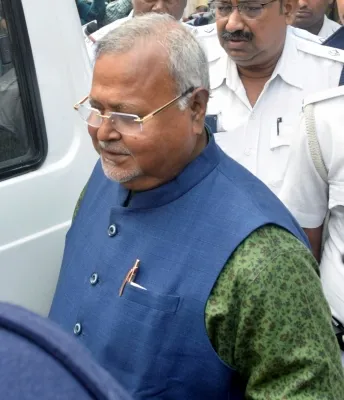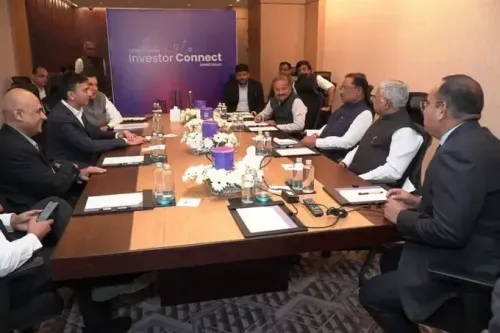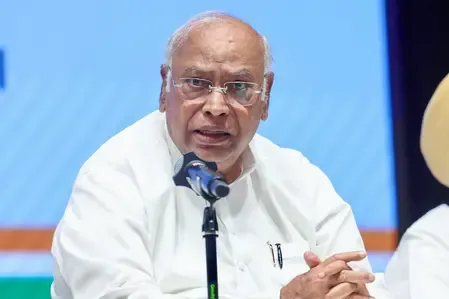Is There a Temporary Visa Halt for Travellers to Saudi Arabia?
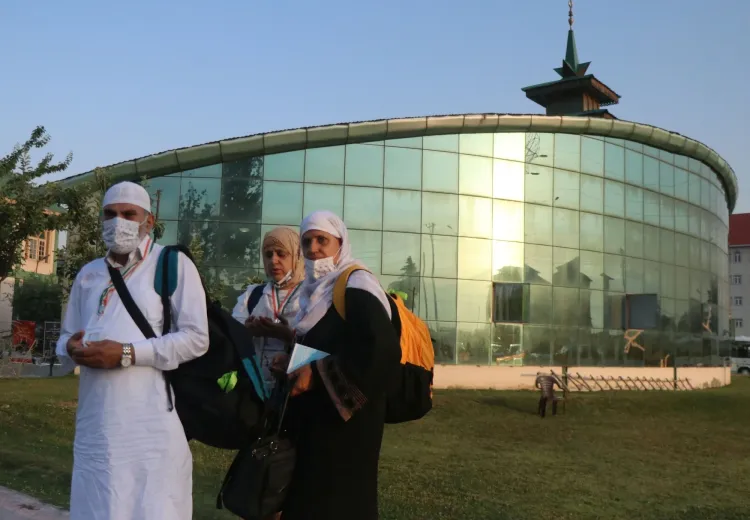
Synopsis
Key Takeaways
- Temporary visa restrictions are due to logistical issues.
- The restrictions affect travelers from 14 countries including India.
- No political motivations behind the decision.
- Saudi Arabia aims to enhance tourism ties with India.
- Bilateral trade continues to thrive despite challenges.
New Delhi, June 9 (NationPress) Sources within the government and foreign policy analysts on Monday refuted certain claims made by opposition figures regarding a temporary suspension of Saudi Arabian visas, which purportedly affects travelers from 14 nations, including India. They emphasized that this interim measure would not undermine the strong ties between the two countries.
Saudi Arabia has decided to temporarily suspend Umrah, business, and family visit visas for 14 countries, including India, from April to June 2025. This action is intended to manage the significant influx of Haj pilgrims and ensure safety, yet some opposition leaders have characterized it as a sign of India's faltering foreign policy.
However, government representatives clarified that the pause is due to logistical issues rather than political motives, aimed at curtailing overcrowding during the Haj season.
Citizens of Algeria, Bangladesh, Egypt, Ethiopia, India, Indonesia, Iraq, Jordan, Morocco, Nigeria, Pakistan, Sudan, Tunisia, and Yemen who hold or seek a Saudi visit visa for business, tourism, or family visits will face entry restrictions until the temporary measure concludes, which may last until the end of June when Haj season is anticipated to wrap up. This restriction follows earlier limits enacted in February 2025 on one-year multiple-entry visas for the same nationalities.
Saudi authorities, which exercise strict control over the Haj process, have indicated that multiple-entry visas were being exploited. Some individuals entered Saudi Arabia on long-term visas but overstayed for employment or attempted Haj without appropriate authorization.
Overcrowding has become a critical concern as unauthorized pilgrims have utilized long-term visit visas to evade restrictions. This issue gained heightened attention in June 2024, when over 1300 pilgrims lost their lives due to overcrowding and extreme temperatures exceeding 50 degrees Celsius. Saudi officials believe unregistered pilgrims significantly contributed to this tragedy, prompting the need for stricter visa regulations. By limiting travel to single-entry visas, the Saudi government aims to ensure that only authorized pilgrims attend Haj, thereby mitigating risks associated with unregulated participation.
While Saudi Arabia has branded this suspension as a temporary measure, no specific timeline for reassessment has been announced. The Saudi government will evaluate the situation before making further decisions.
Despite these provisional restrictions, Saudi Arabia remains committed to enhancing tourism ties with India as part of its Vision 2030 initiative. Bilateral trade between the two nations reached USD $43.36 billion in FY-2023-24. During Prime Minister Narendra Modi's recent visit, agreements worth USD $100 billion were signed in sectors including energy, infrastructure, security, and innovation, further solidifying trade and investment relations.
As India's fifth-largest trading partner, Saudi Arabia continues to align its economic objectives amidst global market fluctuations and energy realignments.
Experts highlight India's rising global significance, noting its evolution as a 'Vishwa Bandhu' in a polarized world.
India's G20 Presidency in November 2023 served as a testament to the nation's commitment to the principles of 'Vasudhaiva Kutumbakam' or 'One Earth, One Family, One Future.' Under its leadership, India sought to provide the world with an alternative to the existing paradigm, shifting from a GDP-centric to a human-centric approach.
PM Modi has expressed that India's enhanced global profile is attributed to its cultural image, growing capabilities, and strategic foreign policy.
In contrast, repeated efforts by Beijing and Islamabad to assert their self-designated roles have been consistently dismissed by the international community.
Pakistan's attempts to introduce strong anti-India references regarding Kashmir at the 19th Conference of the Parliamentary Union of OIC (Organisation of Islamic Cooperation) Member States in Jakarta last month also fell flat.
In the upcoming weeks, India's Operation Sindoor diplomatic outreach has, for the first time in independent India's history, conveyed a firm message to Pakistan that its support for cross-border terrorism will not be tolerated and will elicit a strong military response.
The visits were characterized by high-level engagements as numerous global leaders endorsed India's steadfast commitment to a policy of zero tolerance against cross-border terrorism.

